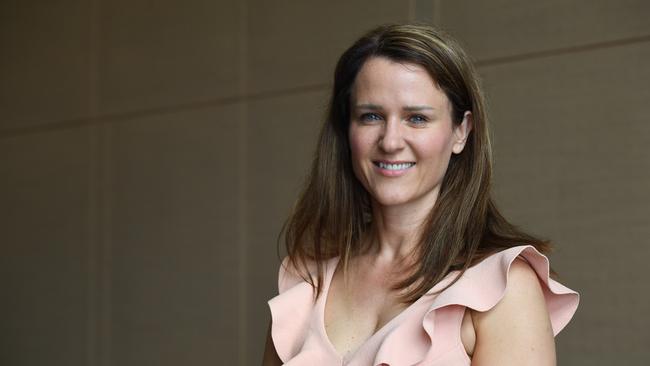The best ways to secure your finances during the coronavirus pandemic
The coronavirus pandemic has caused massive concerns among Australians who are worried about their finances.
Saver HQ
Don't miss out on the headlines from Saver HQ. Followed categories will be added to My News.
Australians have less than $500 in savings as panic buying continues
THE coronavirus pandemic has led to tumbling interest rates, a plunging sharemarket and the nation is headed for a recession.
Governments, companies, small businesses and individuals have been closely reassessing their financial state and left scratching their heads on how to cope with this latest economic downturn.
The situation is so dire it’s resulted in the Federal Government rolling out an economic stimulus package worth about $17.6 billion to minimise the damage of the coronavirus pandemic to the economy.
They are also is the throws of rolling out a second stimulus package.
But while all this has been going on house prices nationally – particularly in Sydney and Melbourne – remain strong and are continuing to climb.
So it begs the question, where is the best place to put your money right now?
CASH
The Reserve Bank of Australia board cut the cash rate to a record-low of 0.5 per cent this month but they are now looking at making an emergency cash rate cut on Thursday.
While rock-bottom rates is great news for borrowers it’s the exact opposite for savers.
Banks have started to reduce their interest returns on money kept in their institutions and some accounts are now offering pitiful interest rates that are virtually invisible at just 0.01 per cent.

Lifespan Financial Planning’s chief executive officer Eugene Ardino said the low-rate environment was particularly tough for retirees.
“They will generally have lower risk portfolios and it’s a struggle for them to get a decent yield,” he said.
But Mr Ardino warned those chasing higher returns, “don’t just pile into investments that seem to have higher yields because often they come with a lot of risk”.
“So-called higher interest savings accounts are paying less than 1 per cent now,” he said.
MORTGAGES/CREDIT CARDS
Interest rates on home loans – both fixed and variable – have never been cheaper.
Some banks including ING recently slashed their three-year, owner-occupier, principal and interest deals down to just 2.49 per cent.
It’s hard to believe they are this low, but they will certainly fall further.
The Commonwealth Bank’s general manager of everyday banking Kate Crous said the reduction in interest rates had given borrowers some good options.
“You can keep your repayments where they are, even though the interest rate has gone down, and pay your loan off sooner,” she said.
“Likewise, if you are on monthly repayments, consider fortnightly to get your debt down faster.”

Mr Ardino said it creates a great opportunity for borrowers to smash their home loan debt.
“Put any extra money into your mortgage and offset account if you have one,” he said.
Pumping extra cash into a mortgage will help chip down the principal at a much faster pace and put the borrower on track to break the mortgage shackles.
Mr Ardino also said the rate cut could be an opportunity to roll other debts that attract higher interest rates into a home loan.
“I would use that money to pay down higher interest-paying debts such as credit cards,” he said.
“The idea is to get you paying as little interest as possible, especially if it’s non-deductible interest such as credit cards, home loans and personal loans.”
Financial comparison website RateCity showed the average credit card interest rate is 17.01 per cent, so rolling card debt into a mortgage that attracts a rate of 2-3 per cent could make perfect sense.
SHARES
The ASX200 has been in free fall for the past few weeks, hitting hard those with share portfolios or super accounts.
But JBS Financial Strategists chief executive officer Jenny Brown said for those “with a long-term time horizon you could buy quality assets and weather the storm”.
“Quality blue-chip assets at good prices or quality exchanged-traded funds are going to give you a good diversified mix of quality shares,” she said.
“What we wouldn’t be recommending is buying small-cap or mid-cap stocks.
“They are a lot more volatile.
“If you want to go into the stockmarket you can buy an ASX50 or ASX200 ETF.
“That might be the right thing for you.”
But Ms Brown urged Australians not to have any “knee-jerk reactions”.
PROPERTY
On an annual basis, both Sydney and Melbourne moved back into double-digit annual growth rates, with values up 10.9 per cent and 10.7 per cent respectively over the 12 months ending February.
REA Group’s chief economist Nerida Conisbee said putting money into property depends “on how long you want to hold” onto it.

“We do tend to see in times of uncertainly people seeing property as a safe asset to choose to invest in,” she said.
“The reason being the sharemarket is highly volatile and it can be quite alarming to see the value of your portfolio drop quite significantly.”
Ms Conisbee said investing in property could be a good option “as long as you have a tenant paying rent and as long as you are looking to hold long-term”.
SUPERANNUATION
Superannuation accounts haven’t escaped the latest financial downturn.
Many balances have gone backwards after the tumultuous time on the sharemarkets both locally and globally.
Pumping extra into super can reap the benefits, the reason being pre-tax or “concessional” contributions are taxed at a much lower rate of 15 per cent, instead of a person’s marginal tax rate, which can be as high as 45 per cent.
Depending on what stage you are at in life, pumping extra cash into superannuation could be a good option however this is to be done with caution.
Super funds have been badly hit by falling sharemarkets in recent weeks.
Originally published as The best ways to secure your finances during the coronavirus pandemic

